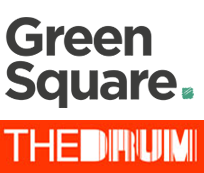22nd July 2013
We’re very used to WPP snapping up shops in China and Latin America, but what of Africa?
The acquisition by WPP, of the South African digital agency Native at the end of last month presents us with a perfect opportunity to consider this under-examined region of the marcomms world.
But first, let’s consider the Native-WPP deal. It’s quite a coup for Sir Martin’s group, because Native is one of the giants of digital marketing in Africa. It first came into being in 2010, when three of South Africa’s leading specialist agencies – Cambrient, Stonewall+ and Brandsh – came together to form the country (and the continent’s) biggest full-service digital agency. The client list is a superb mix of local and global blue-chips: Foschini, Nedbank, Liberty, Sanofi, RCS and Caxton on the one hand; and Vodafone, Pernod-Ricard, Samsung, GM and Nestle on the other.
WPP is using VML – a digital agency network within the global agency group Y&R – to do the deal. VML will get (for a undisclosed sum), three-quarters of Native, which will be rebranded Native VML. All Native’s key management (including the all-important creative) will stay with the business – according to some sources in South Africa – for a minimum of five years.
As ever with the best-thought-out M&As, it’s a mutually beneficial deal – the acquirer gets its hands on some serious talent and great local contacts; and the acquiree enjoys the benefits of investment, scale and access to a portfolio of global brands. But this deal is about more than getting hold of a highly-rated, well-connected local agency – it’s about strategic thinking as well.
WPP has a long and generally successful history of investing in Africa, often through well-established regional outposts of its global networks like Y&R or Ogilvy. In 2012 it acquired a majority stake in South African-born digital marketing conduit Acceleration for the inevitable “undisclosed sum”. At the end of December 2010, it bought a controlling stake in the Nigerian-based research and marketing services group of companies, one of the largest custom research networks across West and Central Africa.
Further back, in 2007, meanwhile, it acquired digital agency Aqua Online which, at that stage, was the country’s largest independent full-service digital agency. Since joining the WPP fold, Aqua has really prospered, which may have helped ease through the Native deal.
In the dash towards Brazil, China and India, Africa is often neglected by many marketing communications businesses. In some ways, this is understandable – the continent has enormous potential, but is underdeveloped and is beset by problems, not least of which are corruption, religious and cultural differences, low productivity and poor governance.
Yet it also has much going for it, not least of which is the fact that it is the world’s “youngest” continent (and is possessed of vast mineral wealth). Of Africa’s 1.033 billion souls, around 50% are under 16. According to the World Bank, Africa’s population is expected to reach two billion by 2050, while some observers estimate that oil-rich Nigeria’s population will exceed that of the USA before then, and may reach a billion by 2100 or 2110.
Ballooning populations of course bring their own sets of problems, but more people also bring opportunities, particularly in marketing. Given that growth in China is stalling, and Brazil’s well-documented troubles of the past few months, Africa starts to seem like an attractive place to invest. What’s particularly interesting about sub-Saharan Africa (and when we talk about “Africa” it’s really the sub-Saharan, as opposed to the culturally distinct “Arabic” northern countries, we’re talking about) is that investment is moving away from mining and infrastructure projects towards goods and services.
Telecommunications firms and banks are currently some of the continent’s biggest spenders on advertising. For example, according to Media Reach OMD, Nigeria’s telecommunications industry was the country’s top spender on above-the-line (television, radio, print and out-of-home) advertising during 2009, followed by the banking and finance sector. Mobile operator MTN was the brand that spent the most on above-the-line advertising with a total of N6.634 billion ($43 million). It was followed by fellow telecommunications companies, Globacom, Etisalat and Zain. Star Lager Beer was in fifth place. Other big advertisers include KFC and Coca-Cola. Also, online growth is faster in Africa than anywhere else in the world (in 2000, there were 200,000 Nigerians online; in 2012, over 43 million) and digital is starting to take over from billboards and TV as the ad medium of choice.
This is important because growth in advertising, particularly of services and branded food and drink, indicates a certain degree of confidence in the future.
The United Nations Population Division, which tracks demographic data from around the world, last month dramatically revised its projections for what will happen in the next 90 years – and, if its estimates are correct, life in the 2100s could be dominated by Africa, rather than the US or China; providing of course, the various African nations’ governments can solve their pressing problems of governance, religious conflict, poverty and resource management.
While the future for Africa remains uncertain, I think there is cause for optimism and WPP’s courting of Africa looks increasingly like sound long-term thinking.
Back in the colonial era, there was what historians describe as a “scramble for Africa”, as countries like Britain, France, Germany and Belgium sought to bolster their empires and exploit the untapped riches of the “Dark Continent”. I think we might see another set of African adventures, although this time both the intent and the outcomes will be more benign for all concerned.
